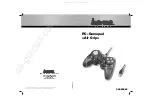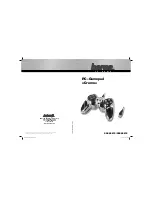
Drive arrays and fault-tolerance methods 95
With an array controller installed in the system, the capacity of several physical drives can be combined
into one or more virtual units called
logical drives
(also called
logical volumes
and denoted by L
n
in the
figures in this section). Then, the read/write heads of all the constituent physical drives are active
simultaneously, reducing the total time required for data transfer.
Because the read/write heads are active simultaneously, the same amount of data is written to each drive
during any given time interval. Each unit of data is called a
block
(denoted by B
n
in the figure), and
adjacent blocks form a set of data
stripes
(S
n
) across all the physical drives that comprise the logical
drive.
For data in the logical drive to be readable, the data block sequence must be the same in every stripe.
This sequencing process is performed by the array controller, which sends the data blocks to the drive
write heads in the correct order.
A natural consequence of the striping process is that each physical drive in a given logical drive will
contain the same amount of data. If one physical drive has a larger capacity than other physical drives in
the same logical drive, the extra capacity is wasted because it cannot be used by the logical drive.
















































